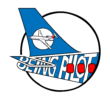
Yes, you must know both. Being outstanding in both subjects is a plus point, but you don’t have to be Einstein. If you have a grasp of basic maths and physics, you will gain confidence, having already studied these subjects, when facing certain topics in aviation training. In some countries in South Asia like Bangladesh and India, there is a curriculum in the local language instead of English, where students in Humanities or Commerce typically don’t study higher mathematics and, particularly, physics in classes 9 and 10. This poses a problem because while they study enough mathematics in general mathematics subjects, they don’t cover physics. As a result, the civil aviation authority doesn’t allow students from non-science backgrounds to pursue aviation careers. However, hope isn’t lost easily. Students can learn physics through online courses, and after completing the syllabus of both subjects, they can apply for foreign scholarships to receive aviation training abroad. (Visit scholarship opportunities here.) Here, I discussed several topics in aviation that require knowledge of mathematics and physics:
Math
- Pilots use maths to calculate flight time, fuel requirements, and the best routes. But basic arithmetic like addition, subtraction, multiplication, and division is involved in this. (Navigation and Flight Planning)
- The plane needs to be within limits and properly balanced, and that requires calculating weight distribution and center of gravity. (Weight and Balance)
- To determine runway lengths for takeoff and landing, climb rates, and performance metrics, pilots utilize mathematics. (Performance Calculations)
- To understand flight instruments, you need to read numbers and do simple calculations involving speed and altitude. (Instrument Reading)
Physics
- The fundamental for controlling the plane is to understand how air moves over the wings, to create lift and how different forces affect the aircraft. (Aerodynamics)
- To help avoid dangerous conditions, pilots must grasp basic principles of thermodynamics and fluid dynamics. This knowledge would help you understand weather patterns such as wind, storms and temperature changes. (Weather Knowledge)
- The basic physics concept requires to understand how the plane’s systems work such as the engine and controls. Additionally, to navigate accurately, pilots need to understand physics principles, as modern navigation relies on these concepts. (Aircraft and Navigation Systems)
Final Thoughts
In pilot training maths and physics are essential. It’s mostly in practical ways to ensure safe and efficient flights. You don’t need to be a maths or physics expert, but a good grasp of the basics is essential for piloting. (If your academic syllabus didn’t cover physics and maths, I would advise joining an online or offline course, grasp the knowledge and get the certificate. This will help you verify your knowledge and help you overcome the admission to pilot training.)
